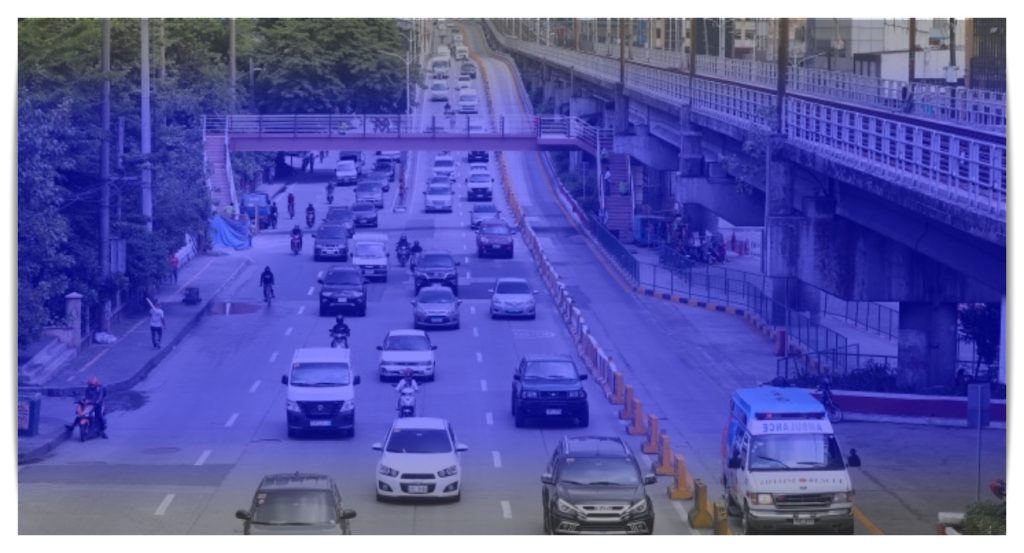Imagine getting a traffic ticket even if no one flagged you down. That’s what the MMDA No Contact Apprehension Policy (NCAP) does—it uses cameras and digital tools to catch traffic violators, without needing any face-to-face interaction with an enforcer.
This policy is now back in effect. According to MMDA Chairman Don Artes, the implementation of NCAP resumes on Monday, May 26, 2025, after the Supreme Court (SC) partially lifted the restraining order issued in 2022.
If you drive along EDSA, C5, Katipunan, Roxas Boulevard, or other major roads in Metro Manila, here’s everything you need to know.

What Is the No Contact Apprehension Policy?
The No Contact Apprehension Policy (NCAP) is an automated traffic enforcement system run by the Metropolitan Manila Development Authority (MMDA). Instead of pulling over violators, NCAP uses CCTV cameras and digital tracking to catch traffic offenses.
When a violation is detected, a Notice of Violation (NOV) is sent directly to the vehicle owner. This notice includes:
- The traffic offense
- Date, time, and location
- Fine amount
- How to pay or contest it
Common Violations Captured by NCAP:
- Beating the red light
- Swerving or illegal lane changes
- Driving in restricted lanes (like bus or motorcycle lanes)
- Obstructing pedestrian lanes or intersections
- Stopping in “No Stopping” zones
MMDA’s NCAP Resumes May 26, 2025
“Yes, Monday,” confirmed MMDA Chairman Don Artes via Viber, referring to May 26, 2025, as the official return of NCAP enforcement on national roads.
This came after the Supreme Court partially lifted the TRO that had paused MMDA’s implementation of NCAP since August 2022.
Areas Covered Under NCAP:
The policy will be active on the following major roads in Metro Manila:
- EDSA
- C5
- Katipunan Avenue
- Marcos Highway
- Roxas Boulevard
- Commonwealth Avenue
- Quezon Avenue
- West Avenue
- E. Rodriguez Avenue
- Sen. Gil Puyat Avenue (formerly Buendia)
Legal Background and Opposition
The 2022 Temporary Restraining Order (TRO) from the Supreme Court was the result of two consolidated petitions:
1. Transport Group Petition
Filed by multiple groups including:
- Kilusan sa Pagbabago ng Industriya ng Transportasyon Inc.
- Pangkalahatang Sangguniang Manila
- Suburbs Drivers Association Nationwide
- Alliance of Transport Operators and Drivers Association of the Philippines
- Alliance of Concerned Transport Organizations
These groups argued that NCAP had no legal basis under the MMDA charter or Republic Act 4136 (Land Transportation and Traffic Code).
2. Private Citizen Petition
Filed by lawyer Juman B. Paa, who was fined multiple times in Manila under NCAP—including for blocking pedestrian lanes. He had to pay these fines before being allowed to register his vehicle, which he claimed was unfair and unconstitutional.
Why Is NCAP Coming Back?
In its urgent motion, the Office of the Solicitor General (OSG) asked the Supreme Court to lift the TRO to allow MMDA to fully implement its road traffic programs.
According to Solicitor General Menardo Guevarra, NCAP is crucial because:
- Metro Manila is facing worsening traffic congestion
- The upcoming EDSA rehabilitation project is expected to cause even heavier traffic
- MMDA needs to harmonize traffic enforcement across local and national levels, especially now that the Single Ticketing System is in place
How the NCAP System Works
Here’s a step-by-step breakdown of how NCAP operates:
1. Detection
CCTV cameras on selected roads monitor traffic 24/7. They automatically record vehicles committing violations.
2. Identification
The system reads your license plate number and checks it against the LTO database to find the registered owner.
3. Notification
The vehicle owner receives a Notice of Violation (NOV):
- Delivered via courier to your LTO-registered address
- Posted online through the MMDA NCAP portal
4. Response
You can either:
- Pay the fine through online payment systems or accredited centers
- Contest the violation by submitting an appeal to the MMDA Traffic Adjudication Board
Be warned: Delays in payment or appeal can affect your ability to renew your car registration.
Ongoing Concerns with NCAP
While the policy is back, it still faces strong criticism from various groups and motorists.
Due Process
Critics argue NCAP violates due process. Since there’s no interaction at the time of violation, drivers only learn about their offenses later—sometimes too late to contest.
High Penalties
Motorists report getting multiple fines for minor violations. Some say it feels like the system is designed to generate revenue, not improve road safety.
Difficult Appeals
Filing a dispute can be time-consuming and stressful. With no video footage readily accessible, some drivers feel they can’t fairly defend themselves.
MMDA’s Promised Improvements
To address public concerns, MMDA plans to:
- Integrate NCAP into the Single Ticketing System for easier tracking and payment
- Release clearer guidelines on how to appeal violations
- Improve public access to footage and evidence
These changes aim to make NCAP more transparent, user-friendly, and focused on genuine road safety, not punishment.
What Drivers Should Do
If you drive through Metro Manila’s major roads, now’s the time to prepare:
Update your LTO records
Make sure your address and contact information are correct. This helps you receive notices on time.
Monitor your status
Visit the MMDA NCAP website regularly to check for pending violations.
Practice defensive driving
Stick to road rules—especially on NCAP-covered roads like EDSA and C5.
Save dashcam footage
In case of dispute, having video proof can be a big help in your appeal.
Final Thoughts
The return of MMDA’s No Contact Apprehension Policy (NCAP) on May 26, 2025, marks a shift back to digital traffic enforcement in Metro Manila. While it promises smoother traffic management and fewer road altercations, it still needs transparency, legal clarity, and accountability to gain full public trust. For Filipino motorists, the key is to stay informed, drive responsibly, and know your rights. Because with cameras watching, every move on the road counts.